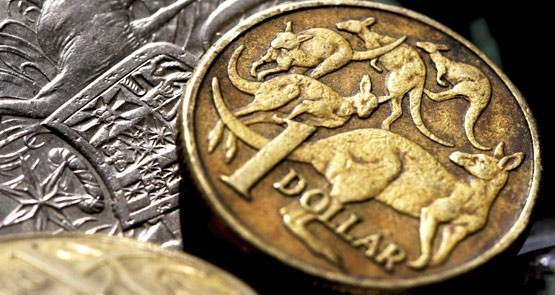
Commodities drag Aussie higher. Lots of stories this morning about the rising Aussie dollar as it jumped above 73 US cents and then went higher to levels not seen since last August. A weakening greenback has helped, but so have the solid fourth-quarter and 2015 growth figures on Wednesday, as they have ended “rate cut looms” as a headline for the rest of this year, unless the world suddenly comes to an end as China or the US slide (the latter is now looking less likely, but wait until after tonight’s February jobs data to be really sure). But there’s another reason — as oil and gas prices plunged last December and earlier this year, they dragged down the prices of other commodities — but not gold, silver and iron ore, all of which have risen strongly (even if iron ore fell 2.5% overnight to just over US$51.30 a tonne overnight, it is still up 34% from the late December low of US$38.30 a tonne). But gold hit a year high overnight and is up 17% this year alone; silver is up nearly 16%. Other commodities have started rising: copper, after hitting a low of US$1.94 a pound in New York, hit US$2.20 a pound, up more than 13% in less than two months and at the highest level since last November. The prices of tin, lead, zinc and even nickel have also risen by 5% to 10% since mid-January. — Glenn Dyer
Brazil, Macau go backwards. Macau’s GDP shrunk by 14.4% in the fourth quarter of 2015 compared to the final quarter of 2014, as the slide in casino gambling hit hard. It was the sixth consecutive quarter of contraction, but is also the best quarter in more than a year; Macau’s economic growth for the first three quarters of 2015 was -21.9%, -23.7% and -21.0%. For the whole year of 2015, GDP contracted by 20.3%. Blame the anti-corruption crackdown in China by President Xi. In Brazil, President Dilma Rousseff can (but won’t) take much of the blame for a smaller but more damaging contraction in South America’s biggest economy. Data out overnight confirmed that the country’s economy got smaller in 2015, shrinking by 5.9% in the final quarter (compared with a year earlier) and 3.8% over all of 2015 in the worst economic growth figures since records started 25 years ago. It was only 2010 when Brazil grew 7.6% and the country was one of the pin-up economies beloved by economists and groups like Goldman Sachs, the World Bank and the IMF as one of the so-called BRICs (Brazil, Russia, India and China). The Rio Olympic Games will be a flop, thanks to the Zika mosquito problem. — Glenn Dyer
Oops, there goes another one. Slater & Gordon grabbed all the headlines this week with a huge write-down and loss, and was sent to the top of the list of local companies most likely to depart this world ASAP. But there was another announcement on Monday that was just as devastating in terms of write-downs, and yet Brisbane-based global testing group ALS has escaped unscathed. Indeed the shares have risen more than 13% over the last four days. ALS revealed it had written down the value of a US oil and gas services company bought in 2013 for $580 million. Monday’s write-down was $330 million. But it came after an earlier write-down in April of last year on the same assets of $290 million. Unlike Slater & Gordon, ALS won the market’s approval by paying down debt with some of the $335 million raised late last year and keeping the rest on hand for a rainy day. But all that money has gone forever, and yet accounting standards allow companies like ALS (and Slater & Gordon, BHP, Santos and a host of other writers-down) to claim these are “non-cash” impairments and losses (and a tax deduction). Talk about an accounting fiction — Dan Brown would be proud to author that furply. — Glenn Dyer
And finally, a weekend depressant. Americans are buying guns in droves (Donald Trump supporters). Smith & Wesson says its third-quarter earnings surged nearly fourfold to US$31.4 million from US$8.1 million a year ago after revenue soared 62% to US$210.8 million. Smith & Wesson expects fourth-quarter profit around the same level and revenue of US$210 million to US$215 million. A result built on death and injury, utterly depressing and so American, and why Donald Trump gets so much support from dying white Americans. — Glenn Dyer







A mixed bag of material, as opposed to so many Crikey articles which can be all dross and no ore.